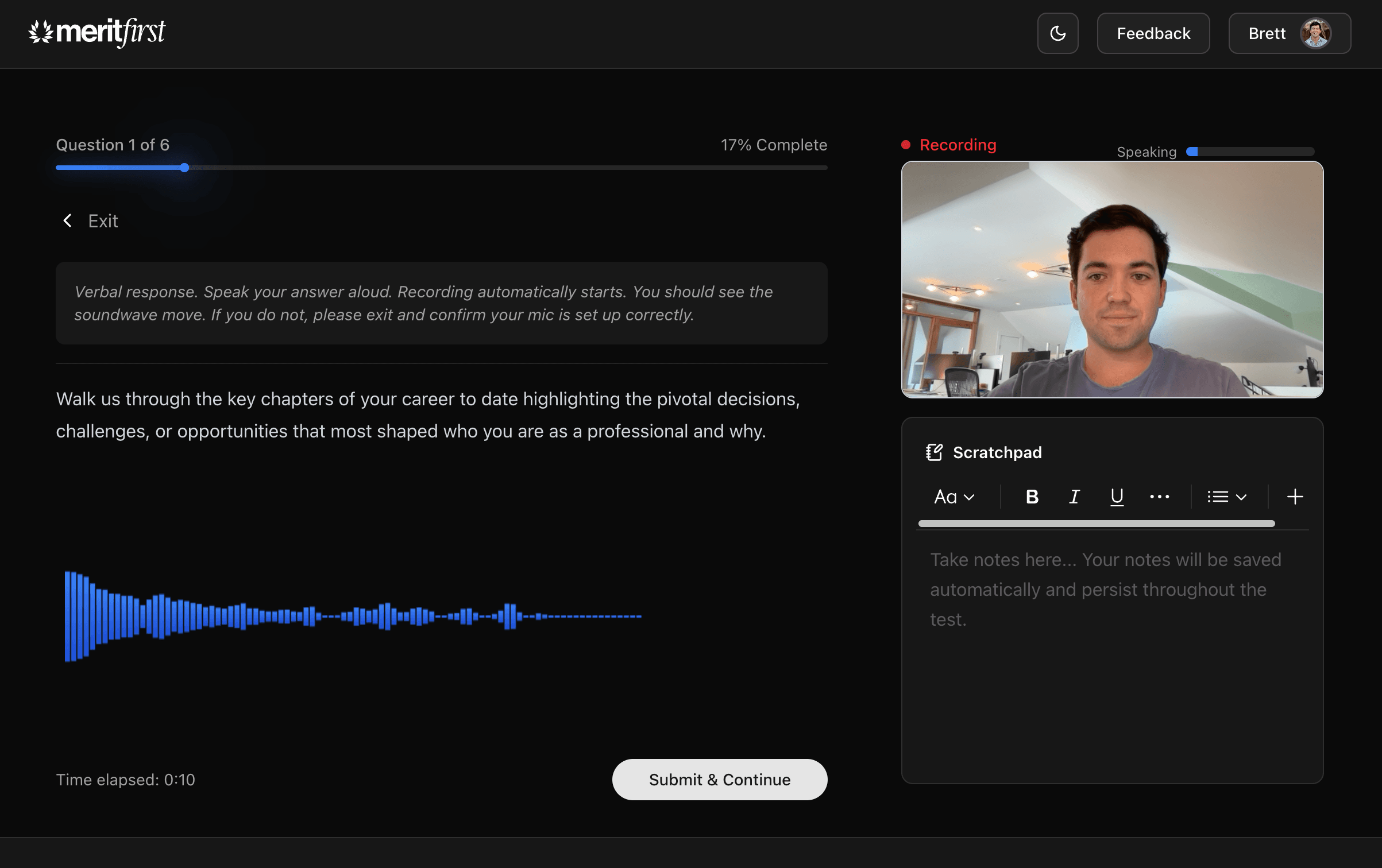Participating Companies Include...














Discover opportunities
Build quality tests that deliver the signal you need when evaluating candidates.
- Easy to Use Test Builder Supercharged with Thoughtful AI
- Build a clean modern test in minutes that fits your needs. Use our AI tools to suggest possible questions and speed deployment.
- Delightful Candidate Experience
- Easy to use, simple, fast and clean. Our tests make it easy for candidates to sign-in and respond.
- Proof of Humanity & Secured At-Home Testing
- Audio and video recording tools as well as several layers of authentication make sure that candidates are who they say they are, and aren't cheating.
- Modern Test Management & Candidate Evaluation Tools
- Our platform has a full suite of test management tools, including AI scoring, and powerful flows for grading and sharing results.
- Compliance Approved
- Share tests with confidence. Our platform allows you to manage any required disclaimers or agreements with candidates.

America's frontier is in unlocking our hidden talent

American companies are in a crisis of broken talent filters. We reflexively screen for the same stale credentials: Ivy League degrees, FAANG experience, "prestigious" employers. It's a modern version of the credentialist bureaucracy that has crept into every American institution. And just like in government, this risk-averse checkbox mentality is making our companies dumber and less competitive.
The problem is twofold. First, outdated proxies poorly predict real capability. A self-taught programmer who has shipped multiple products often has more relevant skills than someone with years of Java maintenance at a big tech company. An electrician turned entrepreneur who has built and scaled a successful local business typically has sharper business instincts than an MBA who has only analyzed case studies.
Second, and more damaging long term, we have no good systematic way to discover & assess exceptional people who don't fit the "typical" mold. We know our country is filled with these people – we've backed many of them. But finding them is too dependent on chance encounters and personal networks – most haven't had a fair shot to demonstrate their ability. For too long most corporations have spent their time checking outdated credentialization boxes and virtue signaling instead of building the Meritocratic Infrastructure to discover and empower America's best talent.
At 8VC & Slow, we're developing objective tests that measure what actually matters: critical thinking & information processing, problem-solving ability, and the capacity to adapt & execute. And we're designing them to be as accessible as possible, stripping away any elements which are actually just proxies for credentials. To be clear, our goal isn't to completely eliminate credentials – degrees and experience still matter. But they should be factors in a comprehensive evaluation, not binary filters that exclude great people before we even meet them.
This matters far beyond Silicon Valley. America's dynamism has always come from our ability to identify and empower exceptional talent, regardless of background. The Manhattan Project didn't succeed by checking credentials or following quotas – it won by finding the most capable physicists and engineers and letting them work. When America needed to accomplish something truly difficult, we knew how to prioritize substance & merit.
America's frontier is in unlocking our hidden talent – and we choose meritocracy as our path forward.
— Joe Lonsdale, Sam Lessin, and Zack Ganieany


